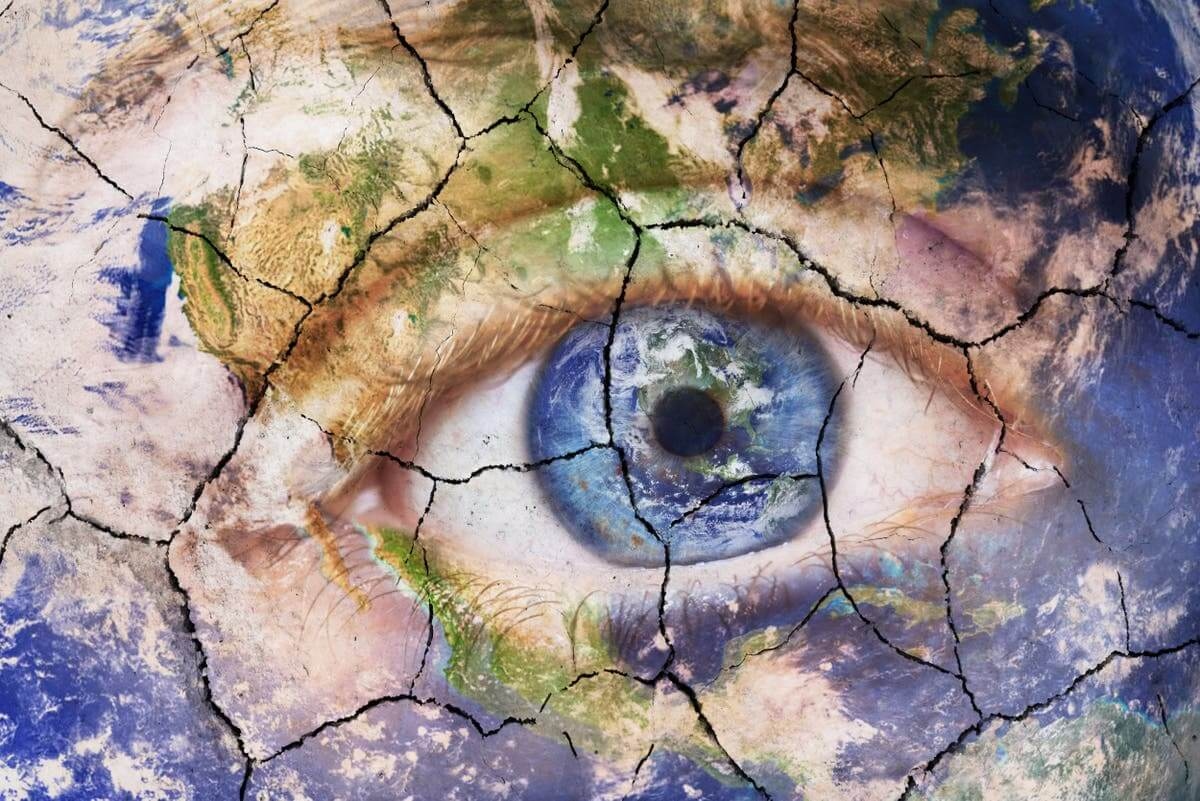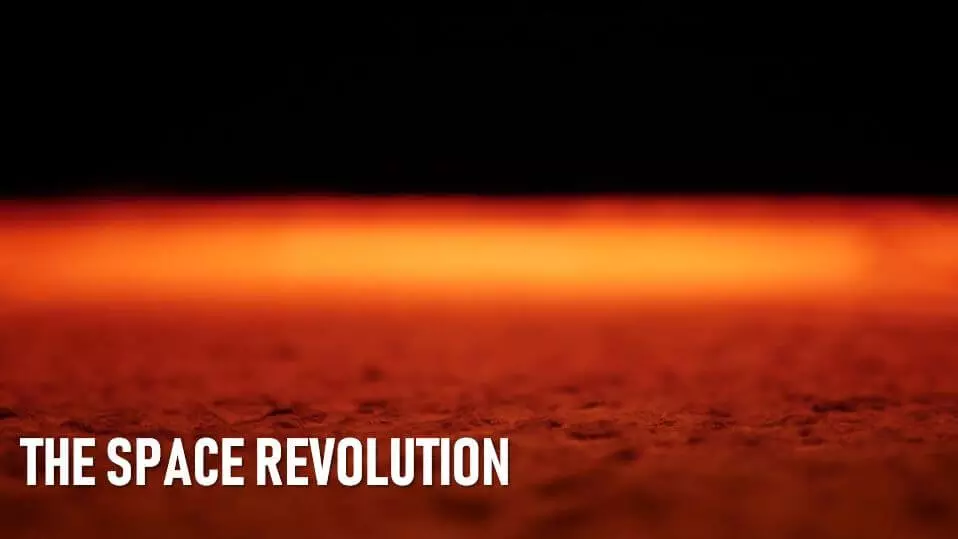Comments
- No comments found

Centuries from now, when the history of the human race is written - probably not using a pen or keyboard - we will be able to divide up the timeline of our species into a series of revolutions; alternating cycles of relative calm punctuated by explosions of unimaginable change.
What revolutions await us in the next centuries? How will the period from, say, 2050 - 2250 come to be known? Well, let’s look backwards to look forwards. Handily, the brilliant Yuval Noah Harari has already laid down some groundwork here, with his dividing of history into revolutions thus far a great start point. To date, human history goes like this:
First, the Cognitive Revolution. Anthropologists theorise that 200,000 years ago the human brain became an exponentially more capable organ, possibly due to the discovery of fire, which enabled food to be cooked. Vital energies previously employed to digest food could now be redirected to cognitive functions and the resultant neurological fillip allowed Homo Sapiens to break free of its ape-like cousins, gaining the power of speech and thus the ability to coordinate on a societal scale.
Then came the Agricultural Revolution. 5000 years ago we saw a huge disruption in the systemisation and organisation of food production, which established templates for towns and cities, created specialised professions and their associated social classes, as well as introducing us to famines and plagues.
Then, the Industrial Revolution. In the last 200 years we’ve harnessed the forces of heat, light, steam and electricity for our own ends. Automation of labour redefined the relationship between humankind and work, with time and productivity commodified, and social hierarchies further solidified.
Now, we are amidst the Digital Revolution. The conversion of information - and thus all working practices, artforms and experiences - into digital form, thus heralding a shift from 200,000 years of physical work towards ‘knowledge work’.
So what’s the next revolution? And might it be the final revolution? If we establish a working definition of a revolution as a turning point in history that reorganises culture, society and economy at a global level, then I think four likely candidates for the next revolution emerge:
Many commentators like to focus on the direst possible outcomes of climate change, highlighting a quadrillion dollar economic collapse, 200 million climate refugees, and wars over dwindling supplies. A collapse could of course be a revolution of sorts, or maybe more accurately devolution, affecting culture, society and economy at a global level. Fewer concentrate, however, on what life would look like if we are actually successful in bringing climate change under our control, which would by its very nature require a wholesale change in our approach to life. So, if we could transport ourselves to a post-Environmental Revolution world, what would it look like?
Of all the revolutions mentioned here, the Environmental Revolution is the one that would have the biggest visual effect on our physical world. Geo-engineering would take centre stage with landscapes adorned with structures for controlling our environment. That could mean C02 extractor farms which would need to be as ubiquitous on earth as train stations, but 10 times the size. It could mean entire US states covered in solar panels. It could mean permanently-circling aircraft spraying reflective substances in the air. It could mean giant polar mirrors directing sunlight back into space.
World governments may collaborate on a planet-scale programme of rewilding, with huge areas of land turned back over to nature via habitat corridors. Animals will become sacrosanct as meat-eating falls off a cliff and the few remaining species are protected like the crown jewels - or possibly extinct ones resurrected.
Capitalism 2.0 may see companies bound by the strictest anti-pollution laws, meaning a reinvention of measures of growth and profit. Many industries will be transformed, or may no longer be, with farming, manufacturing and power generation seeing the biggest changes. Entire new industries may spring up around sustainability as the Green Economy becomes the number one source of jobs. Transport will be altered. Cars will be electrified. Aircraft and ships may run on bio-fuels or in an extreme case may use the power of the wind via airships and sails.
This world may also have a radically altered demography. For most of human history populations were both increasing and, on the whole, younger. Life expectancy was short and people had more children to compensate. But in a world where habitability is optimised, the death rate will fall faster than the birth rate, with the world’s population forecast to plateau at 10 billion in 2100 before falling off a cliff after. When there are not enough people to make more people, innovation and growth will be stifled, which is an existential threat in itself.
To be alive in a post-Environmental Revolution world may feel, on the surface, like an edenic, and utopian state of being, but underneath it could be a sparsely populated and quietly atrophying society.

You could argue the Space Revolution began in 1957 with the launch of Sputnik, but after the initial Cold-War competition of the Space Race, it soon fizzled out. Now it’s set to return. With old enmities returning, geopolitical tensions rising, and private businesses like SpaceX and Blue Origin ambitiously competing their way around old obstacles. The promise of the 1960s space-faring future may be a century late, but it is coming.
Initially, this resuscitation will only be of relevance to billionaire space tourists and, of course, the military, but it is when it becomes democratised that this will tick all the criteria for a revolution. The psychosocial effect of knowing there is a New ‘New World’ cannot be underestimated. Some will see it as an escape from Earth both literally and metaphorically, and the effect of being beyond the clutches of the only planet humankind has ever known will be studied for years to come.
Many may see it as an opportunity to try out new ways of living, and like America was in the 1600s, colonies will become petri-dishes for new style societies. Commentators are already withering about the danger of a ‘Muskian’ colony being free to make its own laws. Moreover, in the way all previous revolutions have generated or solidified social hierarchies, we may see new forms of tribalism emerge. In science fiction work, from Aliens to Elysium, you can often find tropes indicating those remaining on earth are a ‘left behind’ cohort, now forming some kind of planetary underclass
To be alive in a post-Space Revolution world, then, may mean living your best life among the stars, distant from your relatives but also your troubles. Or stuck on Earth in the queue at Greggs.
Advances in healthcare over the last 50 years have been astounding, from the prevention and curing of centuries-old illnesses, to defending against a pandemic that a hundred years ago would have killed a hundred times more people.
As we move away from prevention and cure of disease, we move towards human optimisation; questing to enhance or maximise the performance of our bodies. We can already see early prosaic examples of this: a growing popularity of study drugs like Modafinil, an alarming rise in plastic surgery in all age groups, and a burgeoning ‘wellbeing’ sector as it crosses over with the digital revolution to deliver apps like Headspace, or wearables such as the Muse Headband that optimises meditation states. Similarly, as a consequence, we are seeing Big Tech move into Big Pharma too, as health is increasingly seen as merely ‘IT for the body’.
As tech and health cross over, the next big shift on the horizon may be via gene-tech. With the cost of mapping a human genome expected to fall to $500 by 2025, more and more genetic defects will be detectable, from susceptibility to Alzheimer’s or heart disease, to disorders like alcoholism. Coupled with CRISPR technology, a breakthrough that actually allows the manipulation of genes, this could herald a new era in ‘designer humans’, with people able to ‘turn off’ genes that could shorten their life, or somehow detract from it. Here’s a great primer on this with leading expert in the field of ageing, Aubrey De Grey, speaking on the Joe Rogan show.
The ethics of altering the base programming of one’s own being is already under scrutiny. In a more advanced form, the tech raises important questions about choosing characteristics of your baby as if from a menu, building ‘super soldiers’ who feel no fear or pain to fight wars, or indeed breeding a legion of geniuses to outthink your competitor. But as Yuval Noah Harari stated in his book 21 Lessons For The 21st Century, simply declaring it illegal may not be enough. Once the genie is out of the bottle, it cannot be returned, with geopolitical entities understanding that if they don’t do it, their rivals may do it first, effectively precipitating a genetic arms race.
All this means the next decades and ultimately centuries may see us inching towards what some call ‘post-humanism’, where we take control of our own biological development, guiding humankind beyond its current form and on to something terrifyingly new.
It may be however, that the final revolution is already upon us, just in nascent form. We have spent the last three decades in the thrall of the Digital Revolution as it has recontoured our global culture, society and the economy. But it’s the rise and maturation of two digital flourishing technologies specifically, that could prove to be the engines of the biggest era-defining change for humanity.
The first technology is The Metaverse, effectively the dimensionalisation of the internet into more navigable, ‘embody-able’ virtual spaces, where people can ‘meet’ and interact as they would in the real world. The Metaverse may give us a potential glimpse of a future society. Many commentators remark modern media is an echo chamber, exposing its users only to those values likely to find agreement. That effect may be heightened, when users have ultimate choice over whom to converse and connect in defined virtual spaces, cementing a global stratification and layering societies along lines of shared values and not nationality or regionality. Consequently, we may see the instigation of global virtual communities or networked tribes operating outside geographic and demographic boundaries, able to exert influence from their scattered and disparate locations all over the planet, simply by the virtue of being in each other's presence virtually.
The second is Artificial Intelligence. Long-touted as a potential harbinger of doom for humankind, there is no doubt that at current rates it is set to have an irrevocable influence on our lives. Depending on who you listen to this could be a Matrix or Terminator style eradication, but more likely, and as suggested by AI expert Max Tegmark, we will learn to merge with AI, grafting it into our bodies to align its values with our own and making its survival dependent on our own. Alternatively we also hear ideas from physicists like Michio Kaku, talking about using AI’s power to upload our consciousness into machines to become god-like. Similar to The Biological Revolution above, the apotheosis of this technology will mean humanity cannot remain human much longer. It will, in fact, be something else entirely.
To reiterate the point, the course of human history seems to have been punctuated by a series of profound technological, cultural and economic disruptions, each time re-flowing destiny’s river.
We are due another revolution. Cognitive. Agricultural. Industrial. Digital. What’s next?
Phil is a Global Innovation Director, Media Futurist & Conference Speaker with 18 years’ experience from London, Dublin & Auckland. His key skills are evangelising about the future, simplifying the complex, energising clients and hastening the inevitable. He is also Co-author of - and speaker for - PHD's book 'Merge | The closing gap between technology and us’. Phil holds an MA, Politics and Media from the University of Liverpool.
Leave your comments
Post comment as a guest